|
In the third century, a Greek engineer named Ctesibius of Alexandria created what we now call the organ. The instrument was originally called the hydraulis as the instrument made noise through water pressure flowing through a set of pipes allowing the instrument to produce different notes based on the size of the pipe and how much pressure was put through the pipe. The hydraulis would mainly be played in arenas of the Roman Empire to get the crowd excited, similarly how the organ is used today at ballparks to play Take Me Out To The Ball Game.
Today the organ still uses different sized pipes to create sound, but makers have since replaced the pressurized water system with pressurized air. The organ is composed of two or more manuals (keyboards) played by the hands and a pedalboard which is played by the feet. Each set of keyboard controls a new group of stops. Stops are groups of pipes that can replicate different sounds that can be played on the organ. The average number of stops that an organ can have is 32 stops, meaning there are 32 different sized pipes inside the organ. Many large organs will have 64 stops, and the largest organ in the world has 78 stops. Stops are used to reference different pipes inside of the organ because each pipe only plays one note. In order to have 88 different notes represented as well as four different types of sounds, many organs will have an average of 785 pipes inside of them, with the largest organ in the world, located in Atlantic City, New Jersey, has 33,114 pipes. There are four different groups in the organ called the organ families. These families are in charge of making different sounds on the organ based on what stops are pulled before playing. The first family is called the principals. The principals are the main stops of the organ and sound like the gloomy almost scary sound of the organ that gets featured most in Dracula movies. The second family is the flutes. This family is what it sounds like, when the flute stops are pulled, the organ an imitate various instruments of the flute family such as the recorder, orchestral flute, and piccolo. Third in the family are the strings. The string stop can make the organ sound like string instruments such as violin, viola, cello, or double bass. Finally in the organ family are the reeds. The reeds are a special family are unlike their organ siblings, the pipes are made differently in order to get the sounds for the reed stops. All of the pipes in the reed family have a brass plate called the tongue which lines the small opening of the pipe in order to have a different vibration of air travel through the pipe. Reeds can then be broken down into two different groups, solo reeds, and chorus reeds. However, all reed stops imitate various kinds of wind instruments like oboe, clarinets, french horn, bassoon, trumpet, trombone, and tuba. Typically only one stop would be played at a time during the duration of a piece, but their can be multiple stop changes throughout a piece. There are some rare occasions where multiple stops are played at once, but most composers avoid this as to not make the piece sound crunchy or filled with too much noise at once. Many people argue that the organ is the instrument of all instruments because it can replicate four different families of instruments, and it can also be compared to the voice. In order to sing, the larynx has three operating systems, the actuator (respiratory mechanism), the vibrator (phonatory mechanism), and the resonator. All three of these components can be found within the organ. The actuator or the respiration comes from the air pressure that is constantly circulating throughout the instrument in order to have sound come from each of the pipes. The vibration or phonation comes from the pipes itself, as each pipe is a different size and can be lined, sealed or created from different materials such as wood or metal that creates different vibrations of sound. Finally, the resonation comes from the stops and the manuals as the organ player is the one that is in charge of creating the dynamic level of each pipe when a note is played. The pipes can also fit in the category of resonation as each pipe comes in different sizes that will enhance the tone quality when played. Overall, the organ is a very large and complicated instrument, not only to build but to play as well. One must have fine-tuned coordination to play the organ as they have to use their feet, and hands, to play while simultaneously changing stops and turning pages of music. The number of people that know how to play the organ has slowly been on the decline, but many schools are trying to reverse that by offering students organ lessons for free. No matter how invested one gets into learning how the organ works, or even how to play it, I think one thing can remain true. No wedding, church service, or baseball game would ever be the same if we didn’t have the organ.
0 Comments
Heng-Jin Park, the new Artistic Director of Halcyon Music Festival, has been heralded as a “pianist of unusual artistry and musical imagination,” by the Washington Post. Richard Dyer of the Boston Globe also wrote of Ms. Park, “A centered musician with uncommon control over the sonorous possibilities of her instrument; she plays boldly with a full spectrum of colors.”
Ms. Park is renowned for her versatility as a soloist, chamber musician, pedagogue, and music director. Ms. Park started playing the piano at age five and made her solo debut with the Boston Pops in Symphony Hall at age 15 performing the Schumann Piano Concerto. She has had numerous engagements with the Boston Pops, and has also made concerto appearances with the Boston Classical Orchestra, Boston Philharmonic, New England Philharmonic, L’Orchestre Symphonique Française, and many others. She has given solo recitals in Boston’s Jordan Hall, Alice Tully Hall, the Library of Congress, Ambassador Hall in California, and the Gardner Museum in Boston, as well as concerts in Canada, France, Switzerland and Korea. Ms. Park has also been featured in the Boston Celebrity Series. Heng-Jin Park is a passionate chamber member and founding member and current pianist of the Boston Trio. With the Boston Trio, Ms. Park has performed internationally in some of the most respected concert series and venues, including Carnegie Hall, Jordan Hall, Ozawa Hall at Tanglewood, Merkin Concert Hall in New York, Sanders Theater, UCLA, Cape Cod Chamber Music Festival, Sanibel Festival in Florida, Detroit Pro Musica, Chamber Music Society of Williamsburg, Rockefeller University, and Kolarac Hall in Belgrade, Serbia, Rockport Chamber Music Festival, and Univ of Winnipeg, Canada.The trio has been in residence at the American Academy of Arts and Sciences and at the New England Conservatory Preparatory School. Outside of her work with Boston Trio, Ms. Park has been a guest artist with First Monday Concert Series in Jordan Hall, Maui Classical Music Festival, Andover Chamber Music Series, the Boston Chamber Music Society, Boston Musica Viva, Music at Eden’s Edge, Market Square Concerts in Pennsylvania, the University of Kansas, Penn State, Park University in Missouri, ArtMusic Concerts in Dallas, and the Walden Chamber Players. She has collaborated with such artists as the Borromeo String Quartet, the Fry Street Quartet, Abel Pereira, Wendy Warner, Martin Chalifour, David Hardy, members of the Ying Quartet, Peter Stumpf, Ronald Thomas, and Andres Diaz. Ms. Park has made numerous appearances on WGBH and other NPR stations around the country, and she has recorded for Albany and Centaur Records. In addition to her performing activities, Ms. Park enjoys an international reputation as a pedagogue of both piano and chamber music. As an Artist-in-Residence at Harvard University, she has received the university’s Certificate of Distinction in Teaching award numerous times. She is also on the piano faculty at MIT and the New England Conservatory Preparatory School, has taught chamber music at Tanglewood Music Center and the Walnut Hill School, and gives frequent master classes worldwide. Ms. Park held the position of artistic director of Killington Music Festival in Vermont from 2011 to 2013. Born in Korea and raised in the Boston area, Ms. Park studied with Leonard Shure and Russell Sherman at the New England Conservatory. While receiving her bachelor and master's degrees at NEC, she won several awards and prizes including the Tourjée Grant for graduate study and the Frank H. Beebe Grant for study abroad. She also worked with Marie-Françoise Bucquet at Conservatoire Nationale Superieur de la Musique de Paris. She currently resides in Cambridge, Massachusetts. Jonah Ellsworth is acclaimed as one of the greatest cellists of his generation. Ellsworth has won critical acclaim for his solo performances with the Boston Symphony, Akron Symphony, Boston Philharmonic, Jacksonville Symphony, and New Bedford Symphony, among others. Ellsworth has been referred to as “a kind of unrepentant Tannhäuser” and “a player to watch,” by The Boston Globe and Clevelandclassical.com. The Boston Musical Intelligencer wrote that he is “fearless, [with a] complete range of expressive richness” and “definitely a player to watch.” These praises were earned after performances of the Saint-Saëns Cello Concerto with the Boston Philharmonic, the Dvořák Cello Concerto with the Akron Symphony, and his performance of Strauss’s Don Quixote with the Boston Philharmonic Youth Orchestra (BPYO).
Ellsworth was featured as a soloist with the New Bedford Symphony on their regular subscription series in 2012, performed as a soloist with the Boston Symphony Orchestra in Symphony Hall in 2011, and with Pro Arte Chamber Orchestra under the baton of the late Gunther Schuller. He was invited to participate at Marlboro Music Festival for 2014, 2015, and will return next summer. He is a member of the cello section of the Boston Philharmonic. When Ellsworth recently performed Strauss’s Don Quixote with conductor Benjamin Zander and the BPYO in Prague, former Boston Globe critic Richard Dyer wrote “Ellsworth’s grasp of what the notes mean, of the stories they tell, of the feeling behind and within the notes, is firm, and very deep. His playing of some of the quieter episodes, the yearning that Don Q feels for the idealized Dulcinea, was profoundly moving, and there was a high amount of energy as he tilted against windmills and scattered sheep. And he plays the death sigh of Don Quixote as tenderly and movingly as I have ever heard it – it is with a profound content that this Don Quixote he leaves this life, and not with a sigh of regret.” On this same tour, Ellsworth performed the Dvořák Concerto in Basel, Switzerland. The following is Dyer’s comparison of this performance to that of Natalia Gutman (a legendary Russian cellist who was also soloist with BPYO on this tour): “Ellsworth’s performance was the more mature, serene and centered, and he played with technical mastery, imagination, passion and deep feeling and he was fearless, despite the fact that moments before the concert his cello was knocked over and the bridge was cracked.” His performance of the Tchaikovsky’s Rococo Variations with YPO in Slovakia prompted the critic from The Boston Musical Intelligencer to write, “… Any praise of Jonah’s technical abilities is likely to be an understatement. He is completely assured and intensely musical; each of the variations had a distinctive character and tone color… This is a young man on the verge of an international career.” Ellsworth was finalist of the 2011 Stulberg International String Competition in Michigan and received top prize from the Harvard Musical Association in 2012. He appeared on the PBS TV show of the “From the Top” taped live in Carnegie Hall in New York City which has been broadcast on PBS stations nationwide. Ellsworth has studied with Lawrence Lesser at New England Conservatory and Peter Wiley at Curtis Institute of Music. Other teachers include Andrew Mark and Natasha Brofsky. He has attended Meadowmount Music School where he studied with Hans Jansen, Greenwood Music Camp, Orford Arts Center in Canada. The Boston Trio violinist, Irina Muresanu, has won international acclaim as an outstanding young soloist, recitalist and chamber musician. Muresanu has achieved top prizes in numerous international violin competitions. These include the Montreal International, Queen Elizabeth Violin, UNISA International Sting, Washington International, and the Schaefer String Competitions. She is the winner of the Po Musicis International Award, the Presser Music Award and the Arthur Foote Award from the Harvard Musical Association.
The Boston Globe has come to praise her as “…not just a virtuoso, but an artist,” and the Los Angeles Times has written that her “musical luster, melting lyricism and colorful conception made Irina Muresanu’s performance especially admirable,” while Strad Magazine called her Carnegie/Weill Hall performance “…a first-rate recital.” Muresaby has participated in recent concerts with the Boston Pops, the Orchestre de la Suisse Romande (Geneva), the Syracuse Symphony, the Metropolitan Orchestra (Montreal), the Transvaal Philharmonic (Pretoria), the Orchestre de la Radio Flamande (Brussels), the Boston Philharmonic, the Pro Arte Chamber Orchestra, the Romanian National Radio Orchestra, and the Miami Symphony Orchestra, among others. Irina Muresanu has collaborated with Kim Kashkashian, Cynthia Phelps, Sharon Robinson, Ronald Thomas, Andres Cardenes, Ilya Kaler, and Nathaniel Rosen. Ms. Muresanu’s performances have been frequently cited as among the “Best of” classical music performances by the Boston Globe, and her recital in the Emerging Artist BankBoston Celebrity Series was named one of the Top 10 musical events by TAB Magazine. Irina is also often heard on Boston’s WGBH and other NPR radio stations. As an active chamber musician, Ms. Muresanu has appeared in a variety of festivals and venues which include, Bargemusic in New York; the Rockport Festival in Massachusetts; Bay Chambers concert series and Bowdoin Festival in Maine; the Strings in the Mountains festival in Colorado; Maui Chamber Music Festival in Hawaii, Reizend Music festival in Netherlands; Festival van de Leie in Belgium; and the Renncontres des Musiciennes festival in France. Ms. Muresanu’s discography includes the Thomas Oboe Lee concerto on the BMOP label, works Elena Ruehr dedicated to Irina Muresanu on Avie Records, the integrale of William Bolcom violin and piano sonatas with pianist Michael Lewin on the Centaur label, and the Guillaume Lekeu and Alberic Magnard late Romantic violin and piano sonatas (with the pianist Dana Ciocarlie) for the AR RE-SE French label. The artist has also recorded the world premiere recording of Marion Bauer’s Sonata for Violin and Piano (with pianist Virginia Eskin) on Albany Records, a CD with works of Andy Vores, and a CD featuring chamber works of Erich Korngold released by the VPRO Radio Amsterdam. Irina Muresanu currently serves on the faculty of the Boston Conservatory. She is a Bucharest, Romania native and has received the prestigious Artist Diploma and a Doctor of Musical Arts degree from the New England Conservatory. Irina Muresanu plays an 1856 Joseph Rocca violin and a Charles Peccat bow, courtesy of Mr. Mark Ptashne. Irina Muresanu will be performing alongside The Boston Trio on February 9 at 2 PM at St. Paul's Lutheran Church and School in Waverly, Iowa. “Whenever this trio plays, drop everything and go hear them!” hailed the Boston Globe during The Boston Trio’s Tanglewood debut at Ozawa Hall. Since their formation in 1997, the trio has quickly become one of today’s most exciting chamber ensembles. The trio is known for their superb sense of ensemble and wondrous balance. These virtuosic and profound musicians are committed to creating exceptional and daring performances of standard and contemporary repertoire.
Violinist Irina Muresanu, cellist Jonah Ellsworth, and pianist Heng-Jin Park each have distinguished careers as soloist, recitalist, chamber musician, and have appeared with major orchestras and premier chamber music festivals throughout the United States and Europe. Highlights for the ’17-’18 season include the trio’s second performance at Carnegie’s Weill Recital Hall, a tour of Florida featuring a performance at the Flagler Museum and a return to the Sanibel Music Festival, and tours from California to Maryland to upstate New York. Recent highlights for the Boston Trio include performances at UCLA, Detroit Pro Musica, University of Arkansas, Maui Classical Music Festival, Rockport Chamber Music Festival, Cape Cod Chamber Music Festival, Virtuosi Concerts in Winnipeg, and performances of Beethoven’s Triple Concerto with the Boston Philharmonic. The Boston Trio has been invited to perform on numerous prestigious music series including the Bank of America Celebrity Series, Seiji Ozawa Hall in Tanglewood, Sanibel Chamber Music Festival, Chamber Music Society of Utica, Gualala Arts Chamber Music Series, ‘First Monday’ series at NEC, Bay Chamber Concerts in Rockport, Maine, Harvard Musical Association, Concerts at the Point, Brigham Young University, Isabella Stewart Gardner Museum, Howland Chamber Music Circle, Carnegie Hall’s Weill Hall, Merkin Hall, performances of Beethoven’s Triple Concerto with the Boston Classical Orchestra, and a nationally televised performance at Belgrade Music Festival at Kolarac Foundation Hall in Serbia. The Boston Trio has collaborated with such artists as the Borromeo Quartet and Bill T. Jones Dance Company and has been frequent guests on Boston’s WGBH Radio and NPR. The trio has coached chamber music at the Tanglewood Institute of Music and served as Ensemble-in-Residence at the American Academy of Arts and Sciences in Cambridge from 1997 to 2004. The ensemble was in residence at the New England Conservatory Preparatory School. The Trio is committed to bringing chamber music to a broader audience through outreach activities at public schools and assisted living centers. The individual members serve on the faculties of the New England Conservatory, the Boston Conservatory, Harvard University, and the Massachusetts Institute of Technology, and are in demand as master class teachers throughout the United States, Asia, and Europe. Learn more about the ensemble at https://www.bostontrio.com/ |
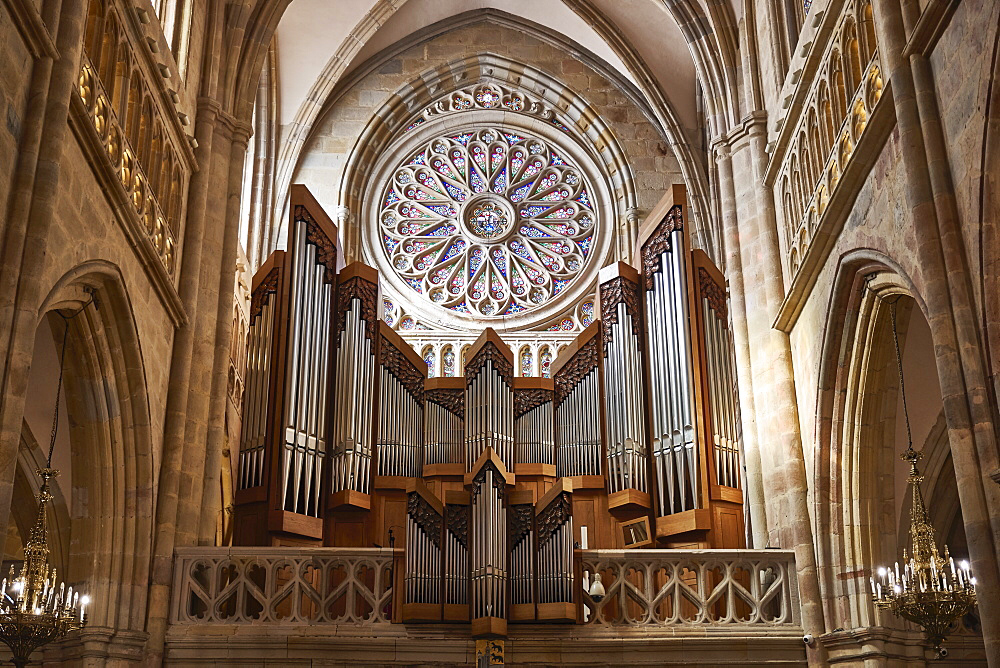
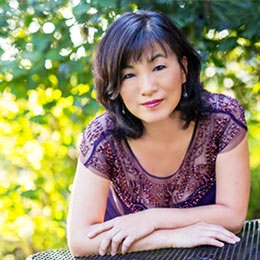
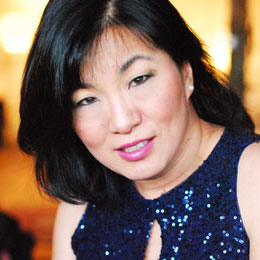
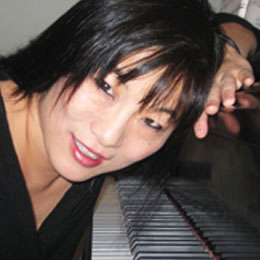
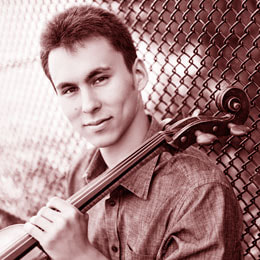
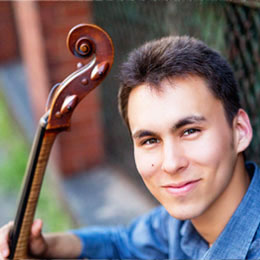
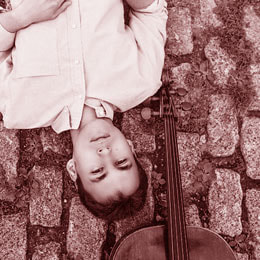
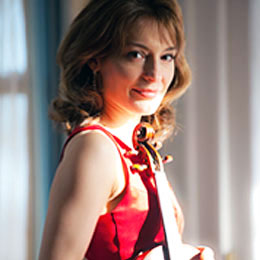

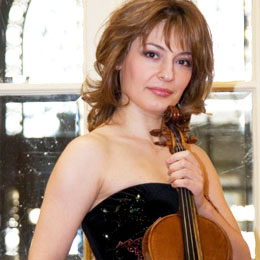
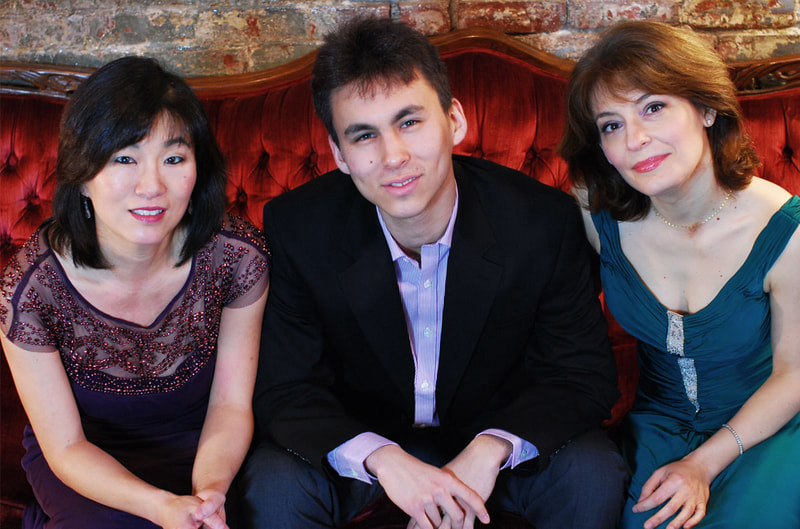
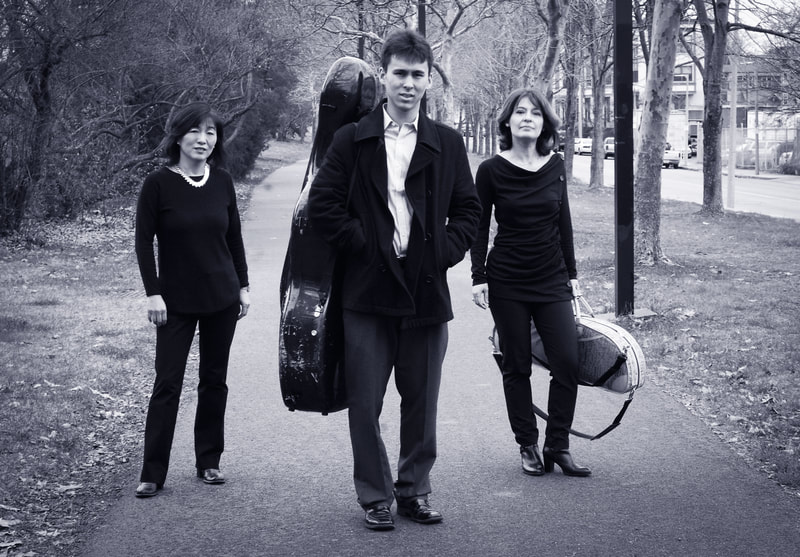
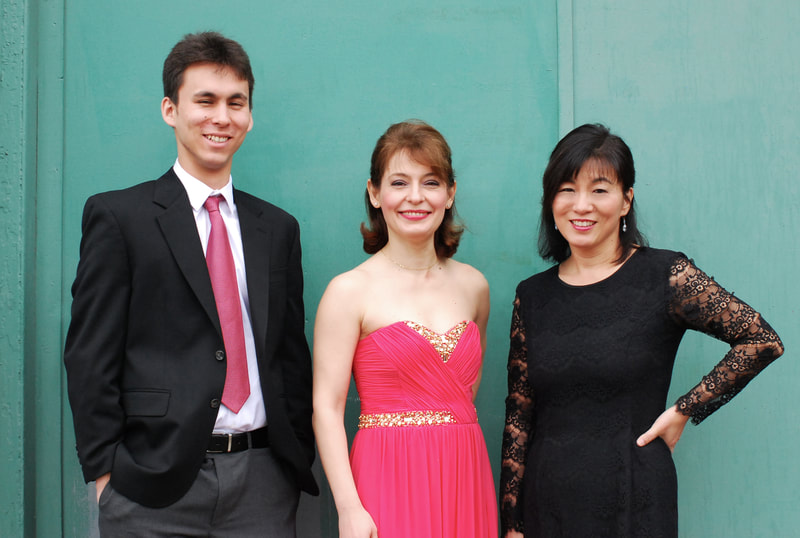
 RSS Feed
RSS Feed